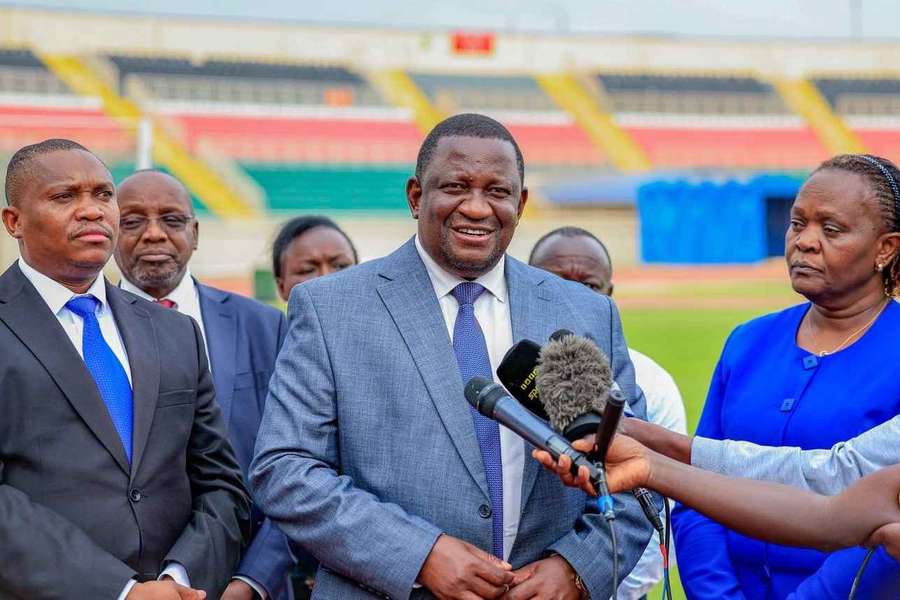On September 11th, the World Anti-Doping Agency (WADA) Executive Committee declared both Kenya and the Anti-Doping Agency (ADAK) non-compliant with the WADA Code, following an audit conducted by the global organisation in May 2024.
The statement from WADA read in part: "Please note that the below consequences will come into effect only on October 3rd, 2025, if the Signatory does not correct its non-conformities in full, or does not dispute WADA's allegations of non-compliance and/or the Signatory consequences and/or the reinstatement conditions by midnight of October 2nd, 2025."
The statement continued: “While WADA will monitor the implementation of the consequences imposed on this National Anti-Doping Organization (NADO), this communication aims to draw your attention to the fact that under Code Article 24.1.9, other Signatories to the Code must recognize and implement these consequences in full. Signatories should be aware that these consequences are not the same as for other cases of non-compliance.”
The declaration placed Kenya’s sporting future on the line, threatening to cripple all competitive activities in the country and casting serious doubt over the nation’s hosting rights for the 2029 World Championships and the 2027 Africa Cup of Nations (AFCON).
Should Kenya be sanctioned, ADAK will lose all WADA privileges including funding and participation in agency programmes, and Kenyan representatives will be barred from holding positions on WADA boards or committees.
ADAK to receive sustainable resources to execute mandate
Speaking at Nyayo Stadium during an inspection of the ongoing tartan track works, Cabinet Secretary for Youth Affairs, Creative Economy and Sports, Hon. Salim Mvurya, said the reforms will enhance the technical capacity of the Anti-Doping Agency of Kenya (ADAK) through a robust policy and legal framework that meets global best practices.
Among the key measures, the National Treasury has committed to ring-fencing funding for anti-doping programs, ensuring ADAK has sustainable resources to execute its mandate.
“The government is providing an action plan and commitment beginning with the supplementary budget to allocate additional funding for ADAK this financial year,” said Mvurya.
The reforms will also focus on restructuring the agency to strengthen its board and technical personnel in line with international standards.
“We are reviewing the organogram to bring on board the right experts needed to enhance ADAK’s efficiency and effectively manage anti-doping programs in Kenya,” he added.
According to Mvurya, Kenya has steadily advanced its anti-doping reforms in alignment with World Anti-Doping Agency (WADA) requirements, reflecting a strong commitment to maintaining global standards in athletics.
To date, 30 out of the 35 compliance issues raised by WADA have been addressed, with a progressive action plan submitted to resolve the remaining five.
“We are in constant communication with WADA on the implementation of the corrective action plan. We expect a positive response in the coming months. This demonstrates the government’s commitment to protecting the integrity of our sport,” CS Mvurya affirmed.
Kenya’s medal haul in Tokyo was a ‘clean win’
Mvurya further emphasised that Kenya’s recent medal haul at the World Athletics Championships was a “clean win”, with the Athletics Integrity Unit (AIU) confirming that Kenyan athletes had been given a clean bill of health.
This, he noted, was a testament to the government’s investment in safeguarding the credibility of Kenyan athletes on the international stage.
The Kenyan contingent returned home with seven gold medals, two silver, and two bronze, a performance that placed the East African nation second overall on the medal standings, just behind the United States of America.
Doping has been an issue with Kenyan athletics for a number of years, with over 140 of its athletes being suspended by the Athletics Integrity Unit since 2017, the most of any nation. Among those suspended include 2016 Olympic marathon champion Jemima Sumgong, and marathon world record holder Ruth Chepngetich.
Meanwhile, the Nyayo Stadium tartan track is at 90% completion and is expected to be ready within the next week. Once complete, the government will embark on the installation of a canopy to modernise the facility further and ensure it meets international hosting standards.


